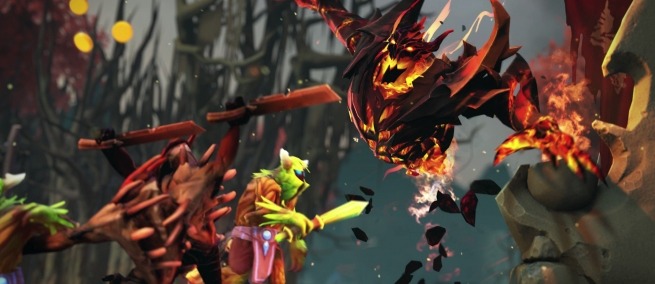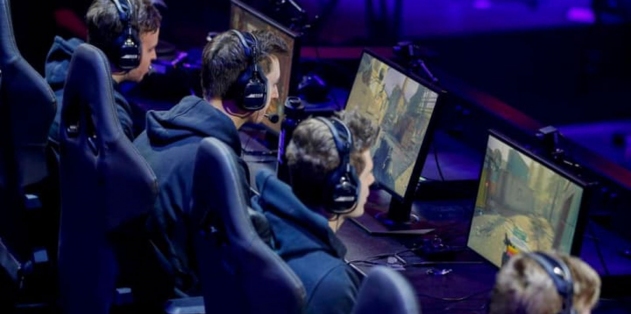
The new documentary ARTIFICIAL GAMER, directed by Chad Herschberger and produced by Jenny 8. Lee, Cathy Trekloff, and Kerry Deignan Roy, portrays the latest challenge in the history of faceoffs between humans and machines: a multiplayer online battle game called Dota 2. The film follows members of a research company called OpenAI as they develop an A.I. system that can compete with world champions of the game. We spoke with the film’s director, Chad Herschberger, about the field of artificial intelligence and the culture of online gaming.
Science & Film: Why were you interested in looking at the development of artificial intelligence through the lens of gaming?
Chad Herschberger: The videogame component of OpenAI’s project makes it a little more tangible and accessible. Even though the game [Dota 2] is complicated, and the average viewer might not understand the game play, they can understand that it’s complicated in a way that games are. For some people, that’s an easier thing to relate to than the ability to sort mail or give you a better Netflix list. The other thing that makes this particular project really fun is the community—the game has a really great community around it.
The question of this film and of Artificial Intelligence in general is, what is human? How do we measure that? I like that the cultural and fandom around the game is a reminder that there is all this other stuff about being human—we love things, have passion for things, dedicate insane amounts of time to be good at things. It’s not all about ability.
S&F: Watching the tournaments in your film where it was OpenAI vs. human players, it was noteworthy that OpenAI is also a bunch of players.
CH: At the end of the day, they’re people and have been working really hard, and you can see that in their faces when they’re watching a bot play.
S&F: Was OpenAI receptive to you making this film?
CH: They were open to showing this process and they’re very eager to get the word out about their project. This film is not an exposé of OpenAI in any way, shape, or form. We don’t get deep into their company dynamics or talk about the things that are happening around them, which are many. If you’re in this field, people have opinions about who they are. For me, this film is more about this group of young people trying to do something that feels insurmountable. Within that lens, OpenAI was great. They gave us lots of access, footage, and time with the engineers.

Still from ARTIFICIAL GAMER
S&F: What do you see as the major obstacle to machine learning and AI development these days?
CH: We get into a conversation at the end of the film about how the machine got beat. It has to do with this idea that, even after 180 million years worth of practice, the bot is still very rigid in its understanding. It doesn’t have an ability to transpose information and make educated guesses in a new circumstance based on a tangentially related old circumstance. Part of what makes human intelligence so great is that we have this wealth of experience and a well of shared experience. We go into these environments and understand the world through a similar experience. Those are things that don’t come built into AI and it takes a long time to acquire. It’s a barrier that these researchers are going to have to find a way to cross because it’s not just a time barrier, it’s a resource barrier. Finding ways to be able to bake in that human knowledge is something a lot of researchers are interested in trying to figure out.
S&F: Are you yourself a gamer?
CH: No, I have not even tried to play [Dota 2]. I grew up with the Nintendo entertainment system and the second wave of home video games. I still own a PlayStation and very occasionally will play a game. I’d be very intimidated to enter that particular realm [of Dota 2].
S&F: Was it daunting to break into that subculture and explain such a tough game?
CH: I can appreciate that it’s a tough game and I will say, one of the real joys of the film was that everybody on both sides—the engineers and players—were invested in helping me explain these concepts to an audience. Most of the people you see in the film spent a minimum of 90 minutes talking with me. As we put the film together, it was nice to have so many charming, well-spoken characters. The game is niche and has a dedicated fan base; they love it in this way that people love movies or comic books, and they want to share.
♦
ARTIFICIAL GAMER is playing in virtual cinemas and select theaters across the U.S.
FILMMAKERS
TOPICS